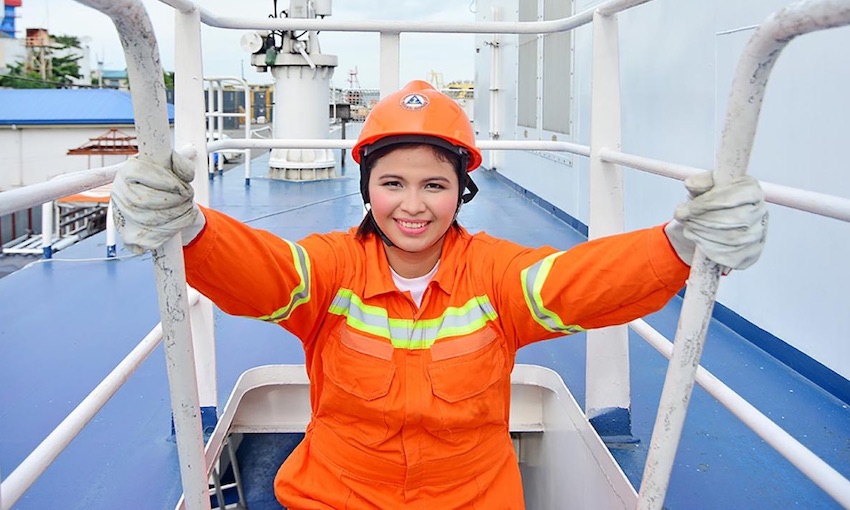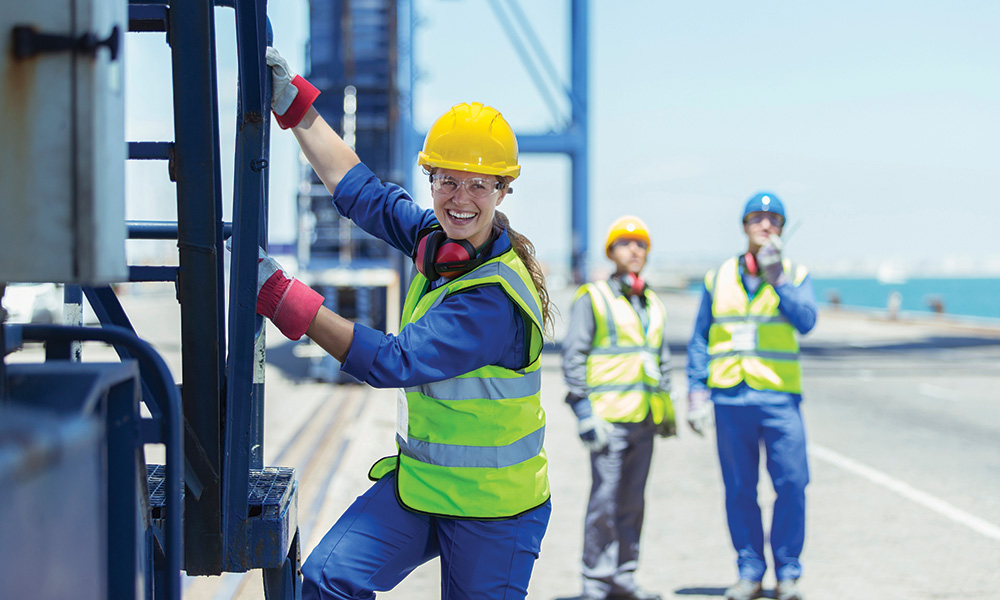THE theme of this year’s International Women’s Day is #ChooseToChallenge, a timely reminder that we can all choose to challenge and call out gender bias and inequality.
The official website of International Women’s Day says, “We can all choose to seek out and celebrate women’s achievements. Collectively, we can all help create an inclusive world”.
International Women’s Day (8 March) is a global day celebrating the social, economic, cultural, and political achievements of women. The day also marks a call to action for accelerating women’s equality.
It is well known that women are under-represented in the maritime industry. A report from Maritime Industry Australia last year showed there is a disconnect between what companies say they are doing and what employees experience.
While the majority of those surveyed have a policy on gender equality – across a range of sectors from oil and gas operators, port/harbour services, shipowners, education providers and government departments – outside of the defence industry, the representation of females within seagoing roles in particular is very low.
The report found that organisations largely don’t incorporate gender diversity strategies in recruitment processes; and the number of females in leadership roles within organisations is low overall, particularly in higher level roles.
Women make up only an estimated 2% of the world’s maritime workforce. Women seafarers work mainly in the cruise and ferries sector, often for Flags of Convenience vessels.
According to the International Transport Workers’ Federation these are among the worst paid and least protected of jobs at sea. Women also tend to be younger, and fewer are officers than their male crew mates.
“Their low number means that women can be subject to discrimination and harassment. The maritime unions are alert to these dangers and strive to protect the interests of women members – who now number about 23,000 worldwide,” the ITF said.
Women can face discrimination even getting into seafaring work. In some countries, for example, maritime education and training institutions are not allowed to recruit women to nautical courses.
“Women tend to enrol on navigation rather than engineering courses. Even once trained, they may have to face prejudice from shipowners who won’t employ women,” the ITF said.
Teresa Lloyd, MIAL CEO said, “Creating an environment that fosters inclusion and accelerates diversity in our industry is critical. No one thinks that addressing the imbalance in maritime workforce gender participation is easy.
“MIAL and our members all have a role in enabling the success of women and with the baselines provided by this report, we can work with industry to work on the next steps and measure progress.”
There are a number of other industry groups celebrating International Women’s Day on 8 March. The Supply Chain & Logistics Association of Australia is hosting a breakfast in Sydney with panelist from across the industry including Amy Bentley, executive general manager–logistics at CSR. And, Freight & Trade Alliance is holding a “Women in Logistics Wellness Walk & Breakfast”, featuring a beach walk, networking breakfast and keynote speech by Sarah Pike, country manager, Amazon Flex Australia & Singapore at Amazon Logistics.
The winner of the “Women in Shipping & Maritime Logistics Award” at the recent DCN Shipping Awards, Kirsty Timbury, will be part of BHP Marine’s activities to celebrate the occasion. The Marine team will join Rivtow Marine for a morning tea in celebration for International Womens Day. As part of the event, guest speaker, Priscilla Jaya – certified coach speaker trainer with the John Maxwell Team – will join virtually to present on the topic of conversations that choose and challenge change.
More broadly, BHP has a variety of virtual events happening throughout the week, including exclusive panel events with leadership personnel, a documentary screening and presentations on inclusion and diversity.
As reported previously by DCN, the International Maritime Organization, and the Women’s International Shipping & Trading Association have launched a global survey to examine the proportion and distribution of women working in the maritime sector, from support roles to executive level positions.
The deadline for the completion of the survey is 30 June 2021.





